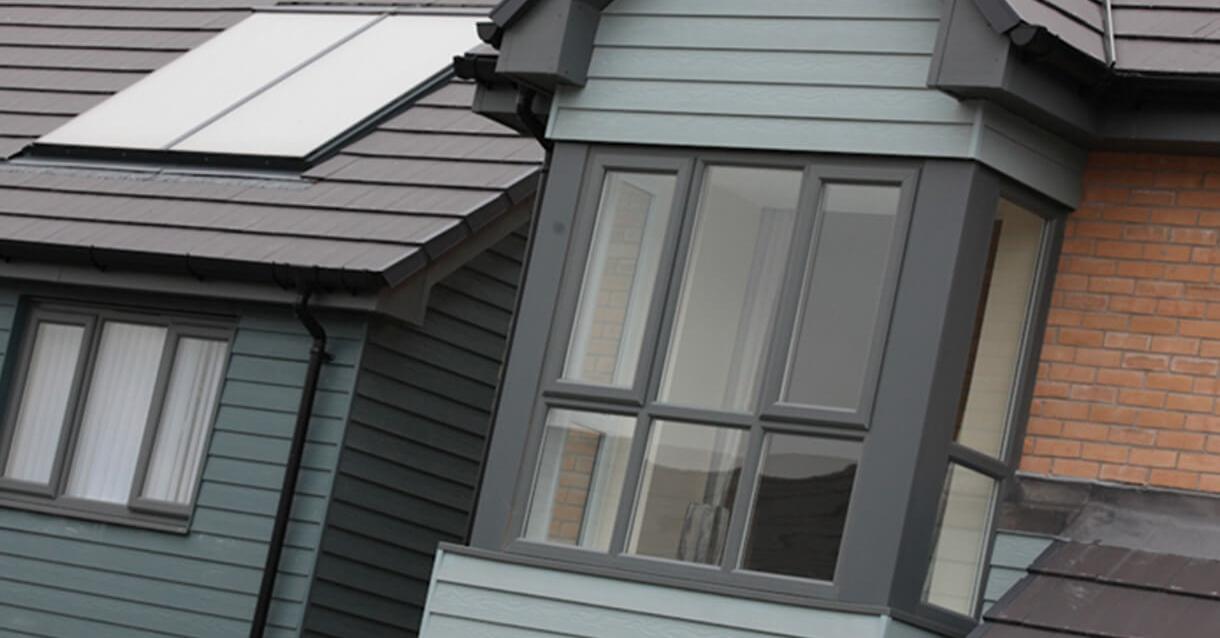Are you curious to know what is window cladding? You have come to the right place as I am going to tell you everything about window cladding in a very simple explanation. Without further discussion let’s begin to know what is window cladding?
In the realm of home improvement and construction, window cladding stands as a pivotal technique employed to enhance the functionality, durability, and aesthetic appeal of windows. This blog aims to shed light on the concept of window cladding, unraveling its purpose, advantages, and the transformative impact it brings to residential structures.
What Is Window Cladding?
Window cladding refers to the process of applying an additional protective layer or material to the exterior surfaces of windows. This external layer serves as a shield against weather elements, enhancing the window’s resistance to moisture, temperature fluctuations, and other environmental factors.
Purpose And Benefits:
The primary purpose of window cladding is to improve the performance and longevity of windows. By adding an extra protective layer, such as vinyl, aluminum, or PVC, window cladding offers several key benefits:
- Weather Resistance: Cladding provides a barrier against rain, snow, and wind, preventing moisture infiltration and minimizing the risk of water damage or leaks.
- Insulation and Energy Efficiency: Certain cladding materials offer enhanced insulation, reducing heat transfer and improving energy efficiency within homes by minimizing heat loss in colder climates and heat gain in warmer regions.
- Durability and Low Maintenance: Cladding materials are durable and resistant to corrosion, rot, and decay. They require minimal maintenance, such as occasional cleaning, to retain their functionality and appearance.
- Enhanced Aesthetics: Window cladding can contribute to the aesthetic appeal of a home by providing a sleek, uniform appearance. It comes in various colors and finishes, allowing homeowners to choose options that complement their architectural style.
Types Of Cladding Materials:
Window cladding materials vary in composition, each offering unique characteristics and advantages:
- Vinyl Cladding: Known for its affordability, low maintenance, and resistance to moisture and fading, vinyl cladding is a popular choice among homeowners.
- Aluminum Cladding: Lightweight and durable, aluminum cladding provides excellent protection against weather elements and offers a modern aesthetic.
- Fiberglass Cladding: Fiberglass cladding offers superior insulation properties, contributing to enhanced energy efficiency and durability.
- Wood Cladding: Wooden cladding, though less common, provides a natural aesthetic and can be treated to resist decay and moisture.
Learn more about similar topics like these on Clynerr.
Installation And Maintenance:
Installation of window cladding typically involves fitting the additional layer onto existing windows. Professional installation ensures proper sealing and alignment, maximizing the effectiveness of the cladding. Routine cleaning with mild detergent and water suffices to maintain the appearance and functionality of cladded windows.
Conclusion:
Window cladding represents a valuable investment in improving the durability, energy efficiency, and visual appeal of residential windows. By providing an additional protective layer against the elements, cladding ensures that windows remain resilient, aesthetically pleasing, and contribute to the overall comfort and functionality of homes.
FAQ
What Is The Difference Between Window Cladding And Frame?
Clad windows have a wood window frame as a base. However, the cladding exterior adds an extra layer of durability to the window. They are a protective barrier against weather conditions and provide strength to the wood frame, making them more durable.
What Is Difference Between Clad And Vinyl Windows?
Wood-clad windows offer the benefits of wood on the inside (such as customization, durability, and increased energy efficiency), but the low-maintenance aluminum jacket or vinyl on the exterior helps prevent against rot, warping, peeling and bending that can occur with low-quality, poorly maintained all-wood frames.
Can Window Cladding Be Replaced?
If your product receives damage, it must be repaired by replacing the entire sash of the window or door panel, or full unit replacement where applicable. This is due to the complexity and labor intensive process to replace the clad.
What Is The Best Cladding For Windows?
Because aluminum is the strongest cladding, it is highly durable and long-lasting on your window’s exterior. Aluminum also requires very little maintenance, so you don’t have to worry about keeping up with it to make it look good as new.
I Have Covered All The Following Queries And Topics In The Above Article
What Is Cladding On A Window
What Is Exterior Window Cladding System
What Is Window Glass Cladding
What Is A Window Cladding
What Is Window Cladding Wood
What Is Window Cladding Materials
What Is Window Cladding Cost
Window Cladding Repair
Window Cladding Images
Window Cladding Design
Vinyl Window Cladding
Aluminum Window Cladding
What Is Window Cladding
